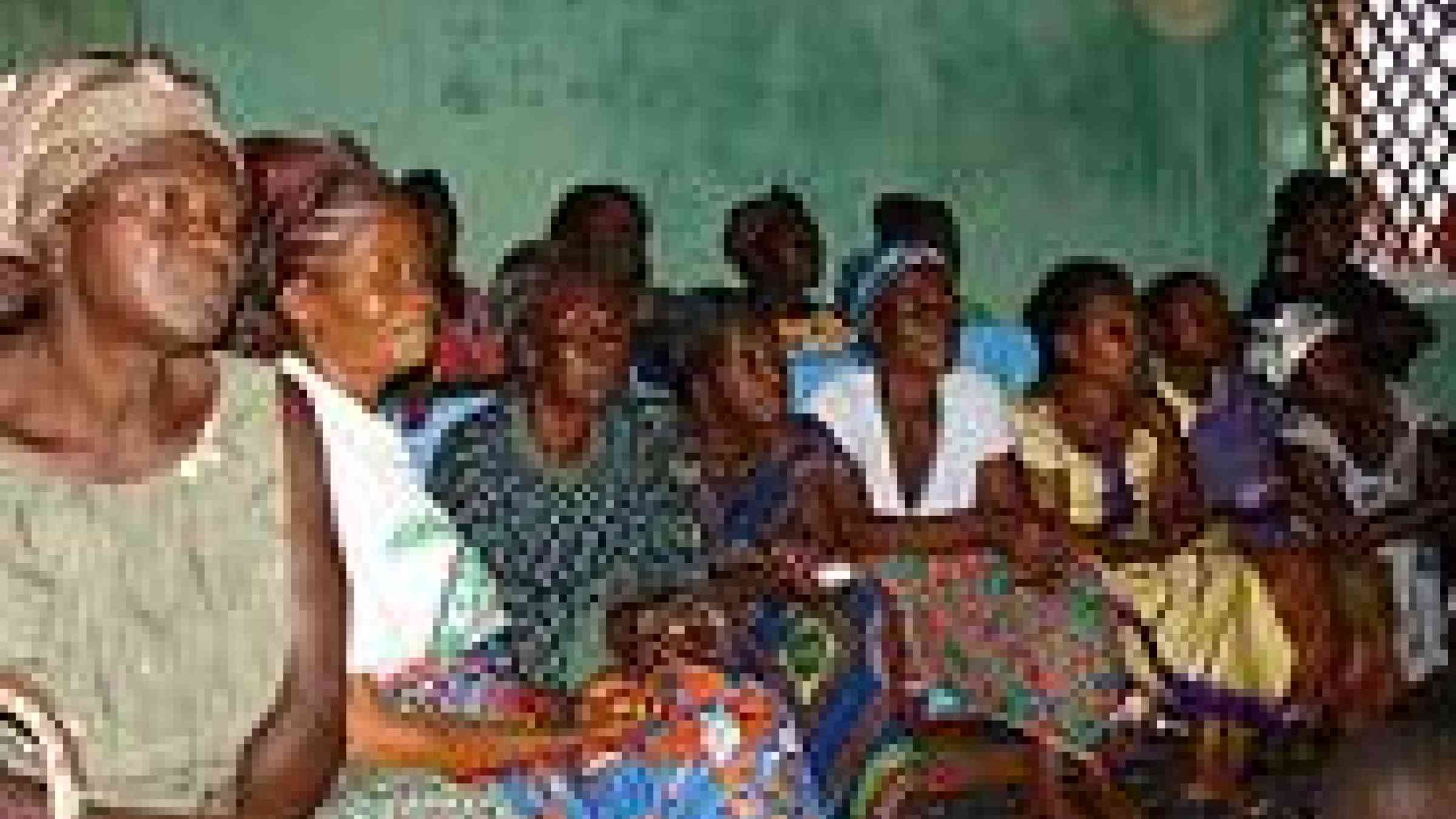Please help us improve PreventionWeb by taking this brief survey. Your input will allow us to better serve the needs of the DRR community.
Ghana and US researchers tackle disaster risk reduction efforts

Photo by IITA IMAGE LIBRARY CC BY-NC 2.0 http://www.flickr.com/photos/iita-media-library/4687754623
Accra – Researchers from University of Ghana (UG) and University of South Florida (USF), in the US are collaborating to enhance disaster risk reduction efforts in the two countries.
They are also examining the adaptive capacities of women to promote community resilience.
The joint efforts would develop and promote inter disciplinary research among social science faculty at UG and USF particularly to explore preparedness strategies women use as factors that can strengthen local communities ability to manage and recover from disaster events.
Dr Osman Alhassan, Senior Research Fellow of UG and Coordinator of the Ghana Study, made this known to the Ghana News Agency during a forum to conduct interviews and group discussions with women at Sabon Zongo, in the Ablekuma Central District to improve the environment and reduce disaster risks.
“The research team together with their Ghanaian counterparts will focus on the development of an evidence-informed global hazard resilience tool kit for women, implementation and evaluation of the toolkit in select communities in the Greater Accra Region and Florida Metropolitan area, as well as a long term collaborative research agenda centred on disaster risk reduction in vulnerable areas in Ghana and the US.
“Other strategies are to effectively engage in a dialogue about the particular needs of women in a disaster context. Collaboratively we will assess the disaster preparedness and recovery strategies of women in disaster prone areas of Ghana and those of women in US, to evaluate the impact of culture, economic sufficiency, and social relationships.
“The focus will also be on best practices for formulating and implementing improved policies for supporting women in the preparation and recovery stages of disaster, what do women need to know and what key steps do they need to take before disaster strikes, how to maximise their resilience during the disaster recovery stages and how to access available resources post disaster event,” Dr Alhassan said.
Professor Kiki Caruson, Faculty Fellow of Research and Innovation of USF, Coordinator of the US Study, said ‘‘our goal is to engage expects from both institutions in a dialogue about how women with care-giving responsibilities assess risks, prepare for specific hazards and adapt in the aftermath of a disaster”.
She said the project would help local officials, non-profits, and emergency management professionals to formulate and implement disaster policy for one of the community’s most vulnerable population groups.
Prof Caruson seeks a partnership that would allow for the cross-national evaluation and analysis of community resiliency in the context of a national disaster with special emphasis on the ways in which mitigating female vulnerability would support more robust disaster preparedness and recovery.
Ms Jane Amerley Oku, Chief Executive Officer of Janok Foundation and a community facilitator of Sabon Zongo, expressed gratitude to the researchers for choosing the Zongo Community and better equipping women during the preparedness and recovery stages of disaster management.
Explore further
Please note: Content is displayed as last posted by a PreventionWeb community member or editor. The views expressed therein are not necessarily those of UNDRR, PreventionWeb, or its sponsors. See our terms of use
Is this page useful?
Yes No Report an issue on this pageThank you. If you have 2 minutes, we would benefit from additional feedback (link opens in a new window).